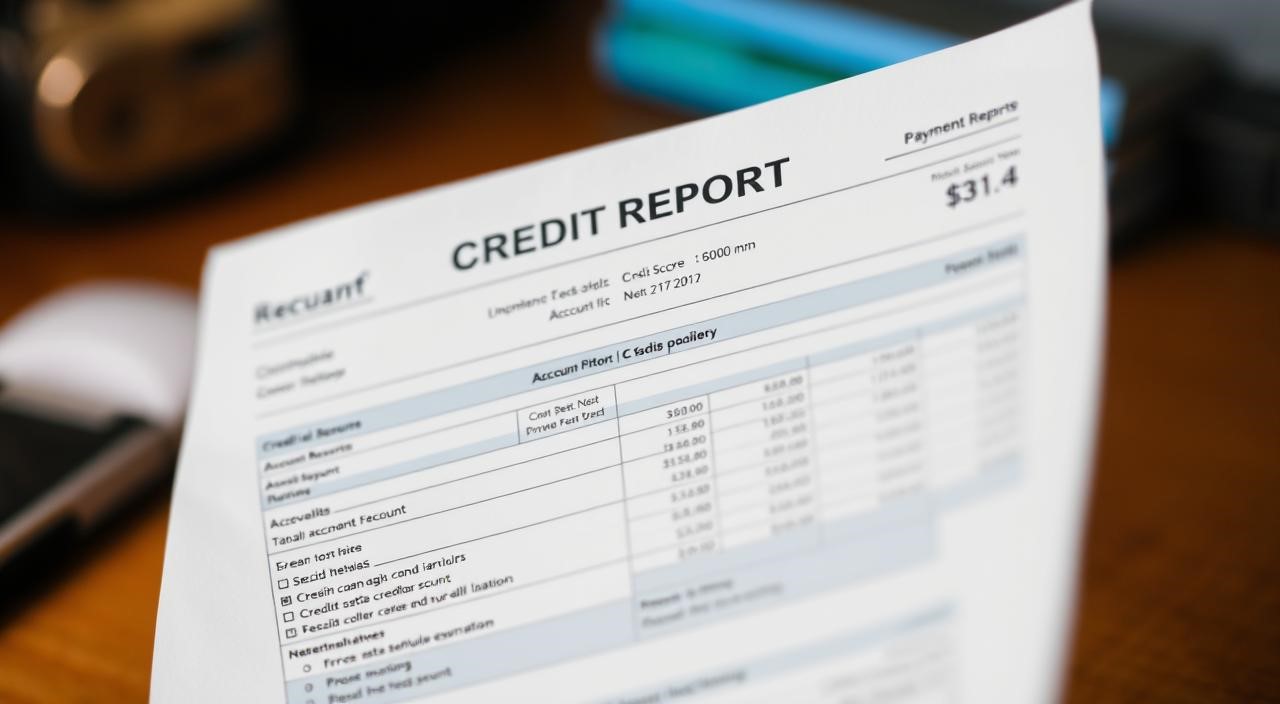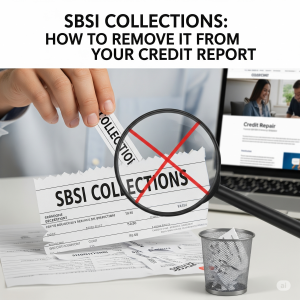
Seeing SBSI Collections on your credit report can feel overwhelming. Whether you received a collection letter in the mail, a phone call from their representatives, or simply noticed the entry while checking your credit report, one thing is certain: having a collection account damages your credit score and makes it harder to qualify for loans, credit cards, or even housing. Click Here
The good news? You have options. By understanding how collections work, learning your legal rights, and using proven strategies, you can remove SBSI Collections—or at the very least minimize its negative impact—on your financial future.
This detailed guide will walk you step-by-step through everything you need to know about SBSI Collections, including who they are, how collections affect your credit, what your rights are under federal law, and the best methods to dispute, negotiate, or even erase the collection from your report.
Who Is SBSI Collections?
SBSI Collections, also known as Southwest Business Services Inc., is a third party debt collection agency. They specialize in recovering unpaid accounts on behalf of creditors. These accounts may include unpaid credit cards, medical bills, personal loans, or other defaulted financial obligations.
Like many collection agencies, SBSI either:
- Works for the original creditor – attempting to recover the debt for a commission.
- Buys the debt – often for pennies on the dollar, meaning they profit from collecting even a fraction of what you owe.
Many consumers report frequent phone calls, letters, and credit report entries from SBSI Collections. Complaints often include:
- Harassing or repeated phone calls.
- Attempts to collect debts not owed.
- Refusal to provide debt validation.
- Reporting inaccurate or outdated information to credit bureaus.
Understanding who they are and why they’ve contacted you is the first step in addressing the issue.
How Collections Affect Your Credit Report
When SBSI Collections appears on your credit report, it’s categorized as a collection account, which is one of the most damaging entries to your credit profile.
Here’s how collections impact your score:
- Major Score Drop: A single collection account can lower your credit score by 50–100 points or more, depending on your credit history.
- Long-Term Damage: Collections remain on your credit report for up to seven years from the date of the first missed payment with the original creditor.
- Paid vs Unpaid Collections: Even if you pay the debt, the entry may still remain as a “paid collection,” which is better than unpaid but still hurts your credit.
Lenders, landlords, and even employers may see this negative mark and view you as a higher financial risk. That’s why it’s so important to take action.
Know Your Rights (FDCPA + FCRA)
Before taking any action, you need to understand your consumer protection rights under federal law.
Fair Debt Collection Practices Act (FDCPA)
The FDCPA protects you from abusive or deceptive practices by debt collectors like SBSI. Under this law, SBSI Collections cannot:
- Call you before 8 a.m. or after 9 p.m.
- Harass you with repeated calls.
- Use abusive or threatening language.
- Misrepresent the amount you owe.
- Contact you at work after you’ve asked them not to.
You also have the right to request debt validation within 30 days of their initial contact. This forces them to prove the debt is legitimate.
Fair Credit Reporting Act (FCRA)
The FCRA ensures your credit report contains accurate and verifiable information. Under this law:
- You can dispute errors on your credit report.
- Credit bureaus must investigate disputes within 30 days. • If SBSI can’t verify the debt, the item must be removed.
Knowing your rights arms you with the confidence to challenge unfair or inaccurate reporting.
Step-by-Step Guide: How to Remove SBSI Collections
- Review Your Credit Reports
Get a free copy of your credit reports from AnnualCreditReport.com. Check Equifax, Experian, and TransUnion to confirm whether SBSI Collections is reporting on one, two, or all three bureaus.
- Request Debt Validation
Send SBSI Collections a Debt Validation Letter within 30 days of their first contact. This letter forces them to provide proof that:
- The debt is yours.
- The amount is accurate.
- They have legal authority to collect it.
If they fail to provide sufficient evidence, they must stop collection efforts, and you can request removal from your credit reports.
- Dispute Inaccuracies with Credit Bureaus
If the information reported by SBSI is incorrect (wrong balance, incorrect dates, debt not yours), file a dispute with the credit bureaus. Provide supporting documents such as statements or letters.
The bureaus have 30 days to investigate. If SBSI can’t verify the debt, the item must be deleted.
- Negotiate a Pay-for-Delete Agreement
If the debt is valid, you may be able to negotiate. In a pay-for-delete, you agree to pay a portion (or the full amount) in exchange for SBSI Collections removing the account from your credit report.
Important: Get this agreement in writing before sending any money.
5. Consider the Statute of Limitations
Every state has a statute of limitations that limits how long you can be sued for a debt. If your debt is past this timeframe, you may not be legally obligated to pay it. However, it can still appear on your report for up to 7 years.
- Escalate if Necessary
If SBSI refuses to cooperate or continues reporting inaccurate information, file a complaint with:
- The Consumer Financial Protection Bureau (CFPB)
- Your state’s Attorney General
- The Better Business Bureau (BBB)
In serious cases, consider hiring a professional credit repair company or attorney.
Paid vs Unpaid Collections: What You Should Know
- Unpaid collections damage your score the most.
- Paid collections look slightly better to lenders but may still remain for years.
- Pay-for-delete agreements are the best-case scenario, as they can completely erase the entry.
Be strategic. Don’t pay without negotiating for deletion.
Statute of Limitations and Timeframe for Removal
- Collections stay on your report for 7 years from the original delinquency date.
- The statute of limitations for being sued depends on your state (usually 3–6 years).
- Paying or acknowledging the debt can sometimes “restart the clock,” so proceed carefully.
DIY vs Professional Credit Repair
DIY Pros:
- Free or low-cost.
- You stay in control.
DIY Cons:
- Time-consuming.
- Requires knowledge of laws and procedures.
Professional Credit Repair Pros:
- Experts handle disputes, negotiations, and follow-ups.
- Higher success rate for complicated cases.
Professional Cons:
- Costs money (typically $50–$150/month).
Preventing Future Collections
- Pay bills on time (set up autopay or reminders).
- Negotiate with creditors early before accounts go to collections.
- Monitor your credit using tools like Credit Karma, Experian, or MyFICO.
- Build positive credit with secured cards or credit-builder loans.
Dealing with SBSI Collections may feel stressful, but you have more power than you think. By reviewing your credit reports, demanding validation, disputing errors, negotiating strategically, and knowing your legal rights, you can significantly reduce or even eliminate the negative impact on your credit.
The key is persistence. Don’t let a collection account define your financial future—take action today to rebuild your credit and regain control of your financial health.

FAQs
Can SBSI Collections sue me?
Yes, but only if your debt is within the statute of limitations. If they do, respond promptly to avoid default judgments.
Will paying SBSI improve my credit?
Paying may slightly improve your score, but unless it’s a pay-for-delete, the collection entry will remain.
Is Pay-for-Delete legal?
Yes, though credit bureaus discourage it. Many collectors still agree to it if negotiated properly.
What if SBSI refuses to remove it?
Keep disputing and escalating complaints. With persistence, many consumers succeed.
Do credit repair companies really work?
Reputable ones do, but you can also handle disputes yourself. Always research before hiring.
